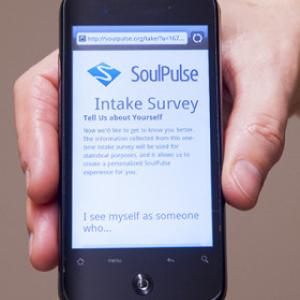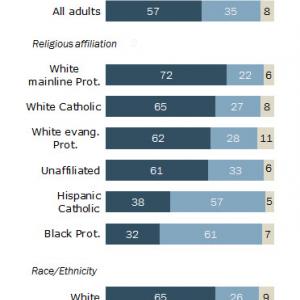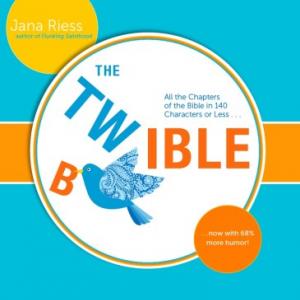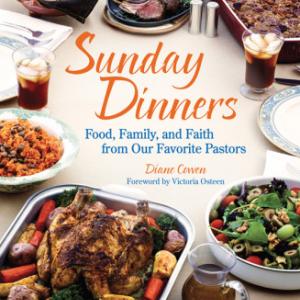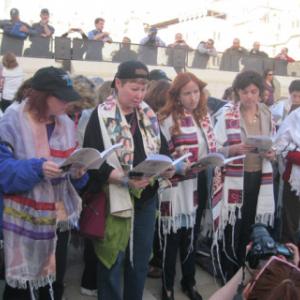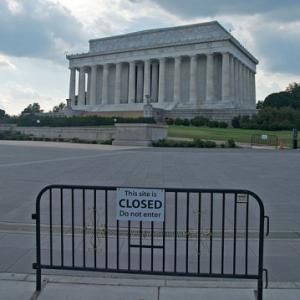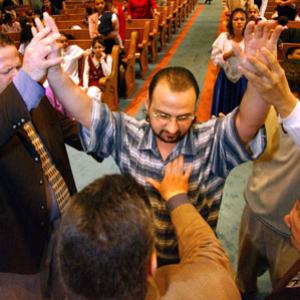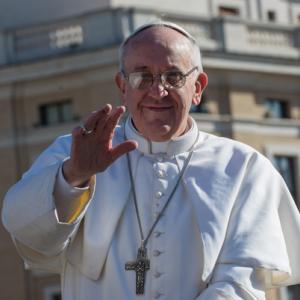Cathy Lynn Grossman is a senior national correspondent for Religion News Service, specializing in stories drawn from research and statistics on religion, spirituality, and ethics.
Posts By This Author
Pope Francis Names 19 New Cardinals, None from the US
Pope Francis released the names of 19 new princes of the Catholic Church Sunday — none from the United States.
The list included cardinals for Burkina Faso and Haiti to show “concern for people struck by poverty,” according to Vatican spokesman the Rev. Federico Lombardi. And the pope created new cardinalatial sees, Perugia in Italy, and Cotabato on the island of Mindanao in the Philippines.
The consistory, scheduled for late February, will fill 13 vacant seats plus bring in three more cardinals to replace those who will turn age 80 — too old to vote in a papal election — by the end of May.
New 'SoulPulse' App Lets Users Monitor Their Spirituality in Real Time
Folks who have just knocked back two drinks say they’re really aware of God at that moment.
And good sleep enhances a sense of God, joy, peace, and love.
Who knew?
Actually, about 160 people, so far, know such details about their spiritual lives. They were the first participants in SoulPulse, a newly launched, ongoing study of spirituality in daily life.
It’s an “experiential” research survey inspired by pastor/author John Ortberg and conducted by a team led by Bradley Wright, an associate professor of sociology at the University of Connecticut and author of Christians Are Hate-Filled Hypocrites … and Other Lies You’ve Been Told.
Twice a day for two weeks, participants receive questions asking about their experiences of spirituality, their emotions, activities, and more at the moment the text messages arrive.
‘None’ could be religion’s new normal in Britain, USA
Merry what? Just in time for Christmas, new statistics show “no religion is the new religion” in Great Britain, according to a study released Monday.
The study, by Westminster Faith Debates, finds 38 percent adults in Great Britain, and 48 percent of those ages 18 to 29, checked no religion in online surveys conducted in January and June by YouGov.
These numbers fall midway between the findings of two other British studies that both show a trend away from the pews.
Christmas in America: Belief in the Virgin Birth and Visits from Santa
Nearly one in three Americans, including many with no little children at home and those with no religious identity, say they pretend Santa will visit their house on Christmas Eve.
Overall, 31 percent of U.S. adults play up the Santa role in their holiday season, according to a survey released Wednesday by the Pew Research Center.
Jesus, however, is still the star of Christmas.
Christmas Is a Commercial Holiday, Not a Sacred Holy Day, for Many
Nine in 10 Americans will celebrate Christmas this year, but a new poll shows that increasing numbers see the holiday as more tinsel than gospel truth.
This year more than ever, Americans prefer that stores and businesses welcome them with the more generic “Happy Holidays” or “Season’s Greetings” than “Merry Christmas,” according to a survey released Tuesday by the Public Religion Research Institute in partnership with Religion News Service.
And for one in four American adults (26 percent), Dec. 25 is simply a cultural holiday, not a religious holy day.
A New Look at Giving Tuesday: More Give to Religion Than Realize It
This is Giving Tuesday, when nonprofits of every stripe hope to attract some of the billions of dollars to be spent during the Hanukkah and Christmas season.
Many of those dollars will go to religious groups. Now, new research is expanding the meaning of “religious giving.” It counts motivation for giving, and measures not only gifts to houses of worship but also donations to faith-connected nonprofits that are doing secular service such as fighting poverty or offering job training for the disabled.
“Most people cite their religious commitments, but most also cite the belief that they should give to benefit others. Many people hold both these impulses at the same time,” said Shawn Landres, a co-author of the research report, “Connected to Give: Faith Communities.”
Americans Divided on Facing Death: Fight It, Choose It, or Let It Come
Death may be inevitable, but one in three Americans – including most blacks and Hispanics – want doctors to never quit fighting it.
And that number has nearly doubled in 23 years, a new survey finds.
In 1990, 15 percent of U.S. adults said doctors should do everything possible for a patient, even in the face of incurable illness and pain. Today, 31 percent hold that view, according to a report released Thursday by the Pew Research Center’s Religion & Public Life Project.
The majority of U.S. adults (66 percent) still say there are circumstances when a patient should be allowed to die. At the same time, however, the never-say-die view calling for nonstop aggressive treatment has increased across every religion, race, ethnicity, and level of education.
Can God Take a Tweet? 'The Twible' Delivers Holy Writ with Twitter Wit
Nearly every home has at least one Bible, although few read it.
But 16 percent of Americans log on to Twitter every day. And that’s where author Jana Riess takes the word of God. A popular Mormon blogger at Religion News Service and author of “Flunking Sainthood,” Riess spent four years tweeting every book of the Old and New Testaments with pith and wit.
Now, the complete collection — each chapter condensed to 140 characters — is on sale as “The Twible,” (rhymes with Bible) with added cartoons and zippy summaries for each biblical book.
Her tweets mix theology with pop-culture inside jokes on sources as varied as ”Pride and Prejudice,” “The Lord of the Rings,” and digital acronyms such as LYAS (love you as a sister). To save on precious character count, God is simply “G.”
Conservatives Shift Tone on Gay Anti-discrimination Bill
As a law extending workplace protection to gay, bisexual, and transgender workers makes its way through the Senate this week, there’s a shift in the political air: Arguments that stand purely on religious grounds are no longer holding the same degree of political sway they once did.
The rhetoric from Republican and conservative opponents of the Employment Non-Discrimination Act is moving away from the morality of the bedroom and into the business sphere. More politicians are fighting ENDA as a bad economic move, not as a break with the Bible.
ENDA would “increase frivolous litigation and cost American jobs, especially small business jobs,” Speaker John A. Boehner said in a statement released Monday, which made clear the Senate bill is dead on arrival in the GOP-controlled House.
Baptism Rates Slide Despite High-Profile Boosts
The rite of baptism got big press as Archbishop of Canterbury Justin Welby christened Prince George, a future king of England on Wednesday.
Welby made it a teachable moment for a country where only one in six are baptized. In a YouTube video, he explains that by bringing their son forward for baptism, Prince William and Duchess Catherine are “bringing God into the middle of it all.”
Last month, Pope Francis gave the sacrament a boost when he called a pregnant, unmarried woman to encourage her faith and offered to baptize her baby. While his main message was anti-abortion, his call also reminded Catholics that children of unmarried parents are welcome in the church.
Breaking Bread in Faith and Love
In the Bible, few dine alone.
Small wonder that Christians and Jews see sharing a meal with family, guests, and strangers as a form of spiritual nourishment and hospitality — as valuable as the bread passed around the table.
Although the holiday season’s family feasts are fast approaching, many say it’s the weekly family meal that matters most across time.
Mainline Protestants: Vintage or Vibrant?
Who are the mainline Protestants today? Vintage Protestants? The VPCC — Vanishing Progressive Christian Church? The Legacy Church?
Half a century ago, the denominations under the mainline umbrella dominated the American faith landscape. Now, after decades of declining numbers, only about one in five U.S. adults identifies with a mainline denomination such as United Methodists, the Episcopal Church, the Evangelical Lutheran Church in America, Presbyterian Church (USA), and American Baptists.
Could replacing the “mainline” name help stem the slide? The challenge came from scholar and Presbyterian pastor Carol Howard Merritt. Writing in the venerable Christian Century magazine, she called for a new brand that conveys her view of the mainline’s rising diversity and social justice leadership.
U.S. Jews Diverge on Israel: Strong Ties Despite Disagreements
Where once it seemed that uncritical devotion to Israel was the norm for U.S Jews, that Zionism and Judaism were hand-in-glove, new research finds that’s not the case today — if it ever was.
The Pew Research Center’s newly released, comprehensive Portrait of Jewish Americans not only delved into myriad ways people identify as Jews, it also probed their emotional connection and their theological and political ideas about the Jewish state.
Religious Groups Feel the Pinch of Government Shutdown
As the government shutdown enters its second week, some religious groups are starting to feel the pinch, and they’re also finding ways to reach out.
More than 90 Catholic, evangelical, and Protestant leaders have signed a statement rebuking “pro-life” lawmakers for the shutdown, saying they are “appalled that elected officials are pursuing an extreme ideological agenda at the expense of the working poor and vulnerable families” who won’t receive government benefits.
Starting Wednesday, evangelical, Catholic, and mainline Protestant leaders will hold a daily “Faithful Filibuster” on Capitol Hill with Bible verses on the poor “to remind Congress that its dysfunction hurts struggling families and low-income people.”
Meet the ‘Nominals’ Who Are Drifting From Judaism and Christianity
They’re rarely at worship services and indifferent to doctrine. And they’re surprisingly fuzzy on Jesus.
These are the Jewish Americans sketched in a new Pew Research Center survey, 62 percent of whom said Jewishness is largely about culture or ancestry and just 15 percent who said it’s about religious belief.
But it’s not just Jews. It’s a phenomenon among U.S. Christians, too.
Meet the “Nominals” — people who claim a religious identity but may live it in name only.
Being Jewish Means Being Funny, and That’s No Joke
Yoo-hoo! Sarah Silverman, Jon Stewart, Larry David! No matter how unreligious you comics may be, American Jews seem proud to claim you.
Well, mostly. You know the joke: Two Jews, three opinions…
But seriously: A sweeping new survey from the Pew Research Center, “Portrait of Jewish Americans,” finds humor is one of the main qualities that four in 10 of the nation’s 5.3 million religious and cultural Jews say is essential to their Jewish identity. The survey was released Tuesday.
Survey: Hispanics Flock to Pope Francis, the Democratic Party
A new survey of Hispanic political and religious values finds they’re overwhelmingly Democrats who hold a largely negative view of the Republican Party.
The 2013 Hispanic Values Survey of 1,563 Hispanic adults was conducted online in both English and Spanish between Aug. 23 and Sept. 3. It has a margin of error of plus or minus 3.7 percentage points.
The survey found that most Hispanics are delighted with Argentine-born Pope Francis, but they hold slightly less favorable views of the Catholic Church. While nearly 69 percent look favorably on the pope, only 54 percent see the institution in a favorable light.
After Years of Decline, Catholics See Rise in Number of Future Priests
After decades of glum trends — fewer priests, fewer parishes — the Catholic Church in the United States has a new statistic to cheer: More men are now enrolled in graduate-level seminaries, the main pipeline to the priesthood, than in nearly two decades.
This year’s tally of 3,694 graduate theology students represents a 16 percent increase since 1995 and a 10 percent jump since 2005, according to Georgetown University’s Center for Applied Research in the Apostolate (CARA).
Seminary directors cite more encouragement from bishops and parishes, the draw of Pope Emeritus Benedict XVI and the social-justice-minded Pope Francis, and a growing sense that the church is past the corrosive impact of the sexual abuse crisis that exploded in 2002.
Vitriol Infests Rick Warren Family’s Grief
Pastor Rick Warren, the best-known name in American evangelism after Rev. Billy Graham, lost his 27-year-old son, Matthew, to suicide on Friday.
In the days since, uncounted strangers have joined the 20,000 congregants who worship at the megachurch network “Pastor Rick” built in Southern California, Warren’s nearly 1 million Twitter followers and hundreds of thousands of Facebook followers in flooding social media with consolation and prayer.
“Kay and I are overwhelmed by your love, prayers, and kind words,” Warren tweeted on Sunday. “You are all encouraging our #brokenhearts.”
But a shocking number are taking the moment of media attention to lash out at Warren on their digital tom-toms. The attacks are aimed both at him personally and at his Christian message.
Pope Francis a Huge Hit With U.S. Catholics (For Now)
He has been Pope Francis for less than a month, but the keep-it-simple prelate from Argentina is a wow with American Catholics — at least for now.
The tables may turn on Francis once media attention moves from his no-fuss style to his substantive actions, said a Vatican expert Wednesday.
The former archbishop of Buenos Aires has an 84 percent favorable rating among U.S. Catholics, including 43 percent who hold a very favorable view of him, according to a new survey by the Pew Forum on Religion & Public Life.

